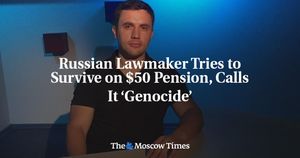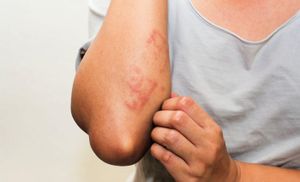Eight and a half years after the tragic terror attack on July 14, 2016, the Paris special court made significant rulings on February 7, concerning the victims of the Nice attack, which resulted in 86 deaths and 450 injuries. The court’s latest decision, announced on appeal, has broadened the criteria for civil party recognition, allowing nearly 200 more individuals to claim their status as victims, bringing the total to 2,348 recognized civil parties.
Initially, 2,200 claims had been validated, but as the legal proceedings unfolded, many individuals continued to seek acknowledgment for their trauma and losses. The court's expansion of the perimeter for civil party status now includes those who arrived on the scene to assist the victims after the truck attack but before the area was secured by bomb disposal experts. This decision emphasizes how the danger extended well beyond the immediate fatalities, as individuals could have faced significant risk even after the assailant was neutralized.
According to the court, "This objective and manifest risk of being exposed to the continuation of the attack, and hence to death or serious injury, was characterized until 12:10 AM on July 15, 2016.” This acknowledgment extends to the traumatic experiences of witnesses confronted with horrendous scenes, such as seeing bodies scattered along the promenade. The judgment also recognizes the staff of the High Club, who were directly impacted when their venue turned unexpectedly chaotic.
"I am pleased with the decision announced today, which was a pivotal step for the victims and their families, enabling them to officially recognize their grievances and paving the way for reparations commensurate with the suffering they endured," noted Me Philippe Soussi, attorney for the civil parties.
One of the central issues was determining the geographic perimeter where victims were situated during the attack. The court has acknowledged, not just those who were struck by the vehicle, but also those present on the south side of the Promenade des Anglais, creating more inclusivity for those affected on the north side and even those injured during frantic crowd movements elsewhere.
Despite the progress, the ruling also clarified which claims would remain invalid. Victims present at locations like the Jardin Albert I, theater de Verdure, Cours Saleya, and adjoining areas were deemed inadmissible. This limitation is disappointing for some who felt they were indirectly impacted by the events.
Some advocates for the victims, like Célia Viale from Promenade des Anges, expressed relief at the extension of civil party status but maintained concern over the prolonged process of recognition. “Now, many victims are waiting to be acknowledged by the compensation fund,” said Viale, emphasizing the inconsistency and challenges within the commendation system.
Previously, during first-instance hearings, only 337 civil party claims had been dismissed. With the recent developments tied to previous challenges issued by two defendants, the court has reevaluated all claims, allowing for more victims to seek justice—a move welcomed by many.
Even the trauma rooted deeply within responders is acknowledged; first responders arriving post-attack on July 14 can now also claim to be victims under the extended criteria recognized by the court’s ruling. They, too, had to confront the dire situations and witness the aftermath of the attack, which will have lasting repercussions on their mental health.
Despite these legal victories, many still advocate for comprehensive reviews of the security measures at the Promenade des Anglais during the attack. Viale laments, “We are still waiting for the insights on security from the night of the attack, we have no updates.” This highlights the continuing need for accountability and improvements to safety standards and emergency responses.
The court's latest decisions represent not only legal victories for the victims but also necessary steps toward acknowledgment and healing. Recognition of injury—whether physical or psychological—is pivotal as survivors attempt to rebuild their lives and processes to reach closure.
The ruling signifies the court's effort to allow broader recognition for those affected by the actions of Mohamed Lahouaiej-Bouhlel and serves as acknowledgement of the far-reaching impacts of the event.



